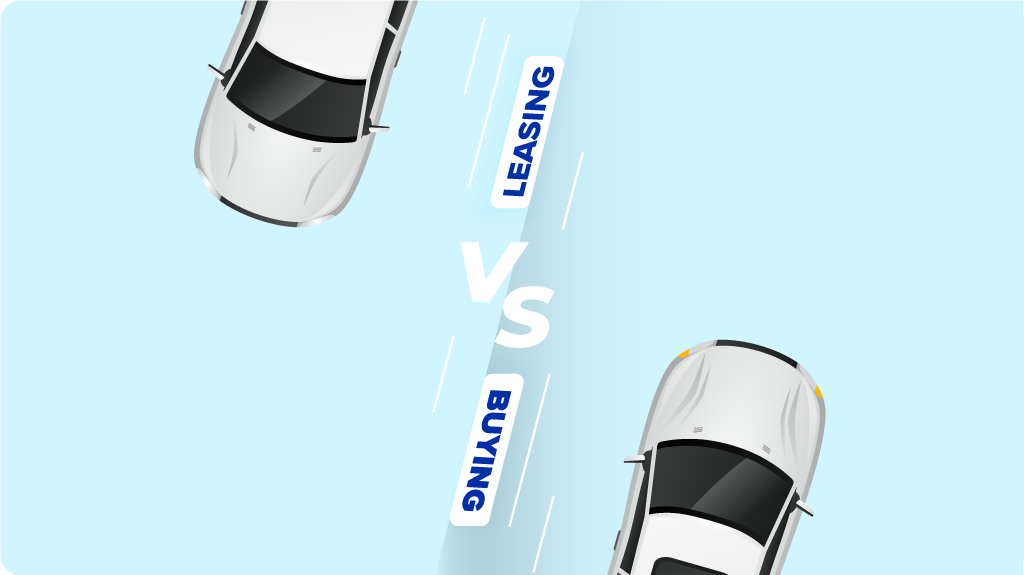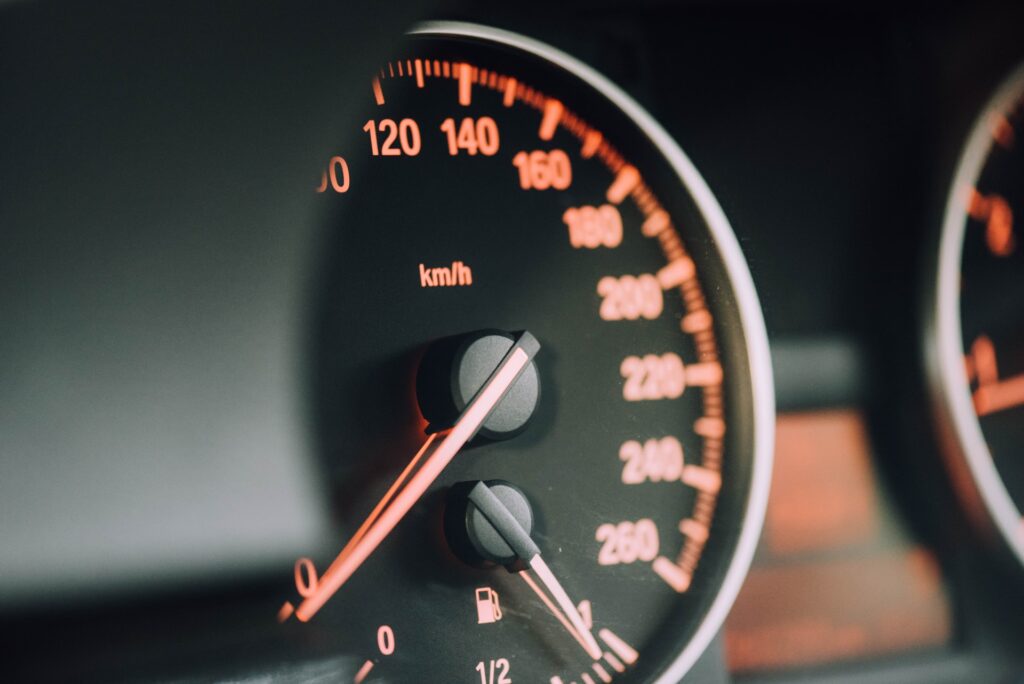
Leasing a car has become a popular option in recent years in the UK. In 2019, the car leasing market grew by nearly 13% and leasing is starting to have an edge on buying.
So if you are thinking of getting a car, you have probably considered leasing one or buying one. But which option is better, to lease or to buy? Leasing deals can give you a cheaper monthly payment in the immediate future, but how does it affect your finances down the road?
We put together this ultimate buying vs leasing guide to help with your decision. We will cover the process, pros, and cons of both buying and leasing.
Difference Between Leasing and Buying
Leasing effectively allows you to “rent” a car on a per month basis. When you lease a car, you pay a monthly rate to use the car of your choice. This monthly payment is determined by several factors such as the value of the car, mileage allowance, excess mileage, length of the contract, and more.
While leasing a car, you have sole access to it. You can drive it where you like, keep it at your house, and you essentially “own” it for all practical purposes.
At the end of the contract, you return the car to the dealership. Leasing a car is effectively a short-term contract which is similar to a rental, but has a longer commitment. In most cases, the minimum term for leasing a car is 1 year and the maximum term is usually six years.
Most leasing contracts have a term of three years. Sometimes, dealerships will give you the option to buy the car back at the end of the contract period as an optional course of action.
Buying a car, in contrast, gives you full ownership of the car. Very few people purchase a car outright at the offset but they usually take out a loan or have an instalment plan.
Usually, you put a down payment on the car and then pay the rest of it off in instalments over the next few years. Most people take a 5-year loan out on their car, though long-term loans are becoming more popular.
Regardless of whether you are buying or leasing a car, you will most likely be subjected to a credit history check.
These are the basic differences between buying and leasing a car. Buying a car is fairly straightforward so we will talk about two common options for leasing car finance, personal contract purchases and personal contract hires. We will then talk about how to buy a car with hire purchases or a personal loan.

Personal Contract Purchase
A personal contract purchase (PCP) is the most common option of financing leasing a car. PCPs are a type of car loan in which you borrow an amount that is equivalent to the difference between a car’s current value and the expected value at the end of the agreement.
If you get a PCP, you will have to put a down payment on the car first. The larger the initial amount of money you put down, then the cheaper your monthly payments will be and the quicker you will pay off the car.
In general, PCP agreements have a 2-4 year agreement term. Most of the time, you will have to go through the full length of the agreement before you can outright buy the car but some dealerships will let you pay it off early.
When the contract is over, you will be given the option to outright buy the car with a “balloon” payment. If you do not want to buy the car, you can just return it and be done with it.
In general, PCP agreements come with maintenance costs and services included. You also have to pay for any wear and tear or repair costs, and car insurance, which typically requires you to have a relatively high credit history score to secure.
For a PCP agreement, the value lost from the car depreciating matters a lot. When you first get the car, the dealership will calculate the expected cost of the car when the lease deal is up. This price is called the “residual value” (RV) or “guaranteed minimum future value” (GMFV).
The balloon payment you can make at the end of the leasing agreement will be equal to the GMRV. Car dealerships let you know this figure beforehand so you can plan accordingly if you want to buy the car.
If at the end of the agreement the cost of the car is higher than the RV, then you can take that equity and put it to another PCP for a brand new car.
In general, cars that hold value well are best served by a PCP plan because you can buy it with cash when the term is over. If the car depreciates in value quicker, then you might want to look into a PCH plan.
PCP Pros
- Relatively inexpensive per month payments
- You have the option to outright buy the car when the agreement is over
- If the car is worth more than the GMFV, then you can use the equity towards a deposit on the next car
- Allows you to use a car that would otherwise be out of your budget
- You do not have to worry about reselling the car at the termination of the agreement
PCP Cons
- You don’t actually own the car during the agreement unless you buy it at the end
- Annual mileage limits and wear and tear can incur penalties
- Interest rate can vary based on the specific dealership
- Need a high credit score
Personal Contract Hire
Personal Contract Hire (PCH) is more like a classic lease contract.
You pay a single deposit upfront and then you continue to make monthly payments. If you have a longer agreement, then your monthly payments will be less.
Most of the time, a PCH has a maximum annual mileage and you will be incurred extra mileage charges if you go over that allotment. PCH agreements might also include a maintenance package and service but you will have to pay for damages.
PCHs, for the most part, work very similarly to PCP agreements. The main difference is that with a PCH, there is no option to outright buy the car when the agreement is over. You must return the vehicle back at the end of the deal.
A PCH is a type of long-term rental that is becoming more popular among private individuals because of the relatively low monthly costs.
When the PCH agreement is over, you have to return the car. A PCH is a good idea if you want brand new cars as they are often cheaper than PCPs. Also, at the end of the term of a PCH, you can switch out your old car and drive a new car at the termination of the agreement, without having to worry about reselling the old car.
You do still need to pay for car insurance and expenses such as road tax.
PCH Pros
- Hassle free, low, fixed monthly payments
- You do not have to worry about depreciation or reselling the car
- You hand the car back and walk away when the lease deal is done
- You can usually upgrade to brand new cars at the end of the term
- Leased vehicles are covered by the manufacturer’s warranty
- Often include maintenance and service fees
PCH Cons
- High initial deposit required
- Mileage limits can incur an extra fee
- You do not own the car through the agreement
- You cannot buy the car when the agreement is over
- You may have to pay a value-added tax (VAT)
- You must pay the full lease amount to cancel the contract
- Mandatory credit check with high requirements
Hire Purchase
A Hire Purchase (HP) is the standard option for buying a new car or a used car. With an HP agreement, you make an initial down payment then pay off the rest of the value of the car in monthly installments.
When you have finished paying the installments, you fully own the car.
In general, you need to [pay at least a 10% down payment on the car, and installments are paid over a 12-60 month period. HP agreements are normally brokered by the dealership but other organizations can manage one.
Like any kind of installment plan, you will have to pay interest on your monthly installments. In general, the percentage rate can vary between 4%-8%.
With an HP, the loan is secured against the car, so if you do not make your payments then the car can be repossessed by the lending institution. You will also have to make one final processing fee called an “Option to Purchase” before you officially own the car.
This fee is normally £100-£200.
HP Pros
- Allows you to own the car outright
- No need to estimate mileage at the end of the agreements
- You will have full ownership of the carCAn place a large deposit to shorten monthly payments
- Flexible repayment terms (1-5 years)
- Easier to get than an unsecured loan if you have lower credit
- No mileage restrictions
HP Cons
- You do not own the car until you make all the payments
- Higher monthly payments than PCP or PCH agreements
- Lenders can repossess the car until you one at least a third
- Higher upfront costs
- No option to drive a new car
Personal Loan
Another way of financing purchasing a car is through a personal loan (PL). Personal loans allow you to pay off the car immediately from the dealership then make regular payments to the lending institution.
You take out a loan for the amount of the car, buy the car, then make regular payments plus interest on the loan. Loans can be used to pay the entire value of the car or just a partial value that is left over after you pay with cash.
Most personal loans for cars are secured. That means that the car itself serves as collateral. If you fall behind on your payments, then the lending institution might be able to repossess your car.
One benefit of getting a personal loan is that you own the car fully at the offset. So, if you need to, you can sell it to pay off the rest of your loan. You also tend to have more flexibility than other financing options.
Apart from straight-up buying a car for cash, personal loans are probably the most straightforward method of acquiring a car.
However, they can have higher interest rates and monthly payments for loans tend to be higher than for PCP, PCH, and HPs.
PL Pros
- You have full ownership of the car while paying off your loan.
- You might be able to pay a smaller deposit
- You may be able to pay the loan off earlier
- No mileage restrictions
- You might be able to sell the car to pay off the loan, depending on the lending institution
HP Cons
- Loans can have high interest rates
- Higher monthly installments
- The car often serves as collateral for the loan
- You may have to repay the loan if you sell the car is the lender requires it

Costs of Leasing vs Buying
Leasing is often cheaper in the short term as they have lower monthly payments and most of the time you won’t have to worry about depreciation from use.
However, leases do not grant your ownership of the vehicle so you don’t really have anything to show for it in the end.
The average monthly cost of leasing a car in the UK was £253 as of 2018 which had gone up since 2017. Conversely, the average car loan payment in the UK costs around £400. Leasing is cheaper in the short-term but you do not own the car at the end of the agreement.
So, if you are looking for a long-term investment, leasing a vehicle does not really make sense. You have to return the vehicle at the end.
Leasing probably makes sense for a smaller, cheaper car. Specifically, leasing is a good idea for cars that might depreciate in value quickly. If you buy a car that depreciates quickly, then you will have to essentially eat the cost if you buy the car.
This can be a bad thing if you want to sell the car at some point in the future. With leasing, you do not have to worry about depreciation and reselling the car.
However, when leasing a car, there are several restrictions.
You cannot modify the car without permission and you must keep the car in good condition before you return it. Also, if you plan to take the car abroad you will most likely have to get permission from the leasing company. They also tend to have fairly strict mileage requirements.
Can I Purchase a Car With Cash?
One last option is to buy a car with cash. Purchasing a car with cash money is desirable on several levels. You will own the car completely from the very first day and that means you can do whatever you want with it.
You also will not have to worry about interest fees from a loan or admin or processing fee from setting up a rental instalment plan. You pay more money upfront but you end up paying less in the long run and you do not have to worry about credit checks.
One other benefit of buying a car with cash is that you do not have to worry about repairs. With a PCP or PCH lease agreement, you have to pay extra money to get repairs. If you already own the car completely, then it’s up to you whether you want to get it fixed.
If you want to purchase a car and drive it until it no longer makes sense to repair it, then buying with cash might be a smart option.
Conclusions
Whether you decide to lease or buy a car, there are several options available for car finance.
Leasing a car is usually the cheapest in the short-term and might be a good idea if you cannot gather up the money for a brand-new car. Leasing also gives you the option to upgrade to a newer model at the end of the lease.
However, when you lease a car, you do not own it unless you get a PCP and decide to buy the car at the end of the agreement.
- The 9 Best UK Money Management Apps (2025) – for individuals and couples - August 8, 2024
- What Salary Should You Be Making At Your Age? (UK Guide) - August 8, 2024
- The Top 10 Most Ethical Banks in the UK: A Comprehensive Review for 2025 - August 8, 2024
